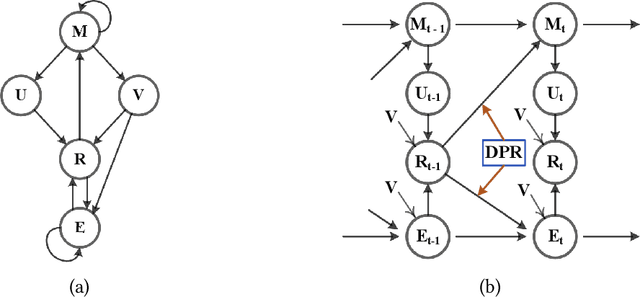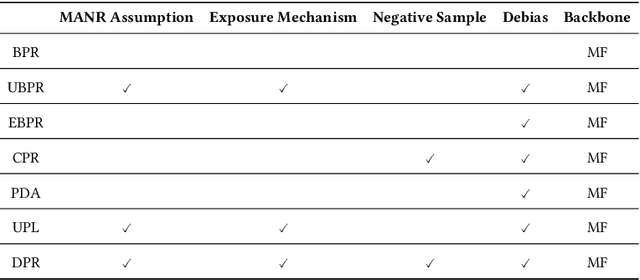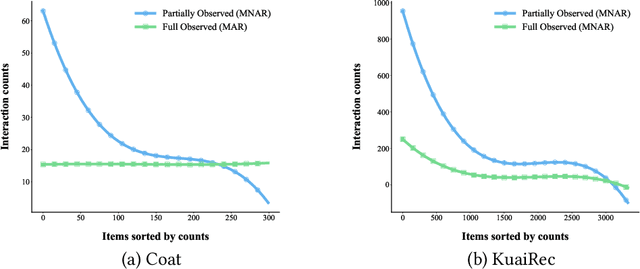DPR: An Algorithm Mitigate Bias Accumulation in Recommendation feedback loops
Paper and Code
Nov 10, 2023



Recommendation models trained on the user feedback collected from deployed recommendation systems are commonly biased. User feedback is considerably affected by the exposure mechanism, as users only provide feedback on the items exposed to them and passively ignore the unexposed items, thus producing numerous false negative samples. Inevitably, biases caused by such user feedback are inherited by new models and amplified via feedback loops. Moreover, the presence of false negative samples makes negative sampling difficult and introduces spurious information in the user preference modeling process of the model. Recent work has investigated the negative impact of feedback loops and unknown exposure mechanisms on recommendation quality and user experience, essentially treating them as independent factors and ignoring their cross-effects. To address these issues, we deeply analyze the data exposure mechanism from the perspective of data iteration and feedback loops with the Missing Not At Random (\textbf{MNAR}) assumption, theoretically demonstrating the existence of an available stabilization factor in the transformation of the exposure mechanism under the feedback loops. We further propose Dynamic Personalized Ranking (\textbf{DPR}), an unbiased algorithm that uses dynamic re-weighting to mitigate the cross-effects of exposure mechanisms and feedback loops without additional information. Furthermore, we design a plugin named Universal Anti-False Negative (\textbf{UFN}) to mitigate the negative impact of the false negative problem. We demonstrate theoretically that our approach mitigates the negative effects of feedback loops and unknown exposure mechanisms. Experimental results on real-world datasets demonstrate that models using DPR can better handle bias accumulation and the universality of UFN in mainstream loss methods.
 Add to Chrome
Add to Chrome Add to Firefox
Add to Firefox Add to Edge
Add to Edge